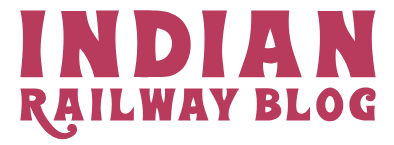“`html
8th Pay Commission Key Focus in Upcoming Railway Union Elections
The upcoming Railway Union Elections are setting the stage for what many are calling a critical turning point for workers across one of India’s largest sectors. A central issue taking the spotlight is the demand for the implementation of the **8th Pay Commission**. As anticipation builds, railway employees and unions alike are gearing up to prioritize this among other crucial matters. Here’s a comprehensive look at how the **8th Pay Commission** and other top issues are shaping the election landscape this week.
The Significance of the 8th Pay Commission
For those not intimately familiar with public sector dynamics in India, the Pay Commissions play a pivotal role. These commissions are appointed every ten years and are responsible for reviewing and recommending changes in the salary structure and other benefits for government employees. With the 7th Pay Commission implemented in January 2016, the demand for the 8th Pay Commission underscores the growing need to reassess and potentially recalibrate pay structures to align with the current economic landscape.
Why the 8th Pay Commission Matters
- Financial Improvement: Railway employees are advocating for an improved salary structure that reflects the inflation and cost of living changes since the last commission.
- Employee Morale: Enhanced compensation packages are seen as an essential measure to improve morale and efficiency among workers.
- Retaining Talent: Competitive pay scales are critical to retaining skilled employees and reducing turnover rates.
The demand for the 8th Pay Commission not only revolves around financial betterment but also addresses a broader need for employee satisfaction and long-term stability within the railways.
Other Prominent Issues in Focus for the Elections
While the 8th Pay Commission is taking center stage, several other significant issues are rallying supporters and will have a substantial impact on election outcomes.
Regularization of Contract Workers
- Job Security: Many contract workers are seeking permanent positions to ensure job security and benefits.
- Equal Opportunities: Demands are being made for equal treatment in terms of promotions and pay scales for all employees, regardless of their contract status.
The regularization of contract workers is a pressing matter, as it aligns with ensuring fair labor practices and equality within the workforce.
Improved Working Conditions
- Better Facilities: Employees are advocating for improved working conditions, including better facilities at work sites and enhanced safety measures.
- Health Benefits: Increased focus on health insurance and medical facilities is another critical demand from union members.
Improving the overall work environment is not just about physical infrastructure but also about ensuring that railway employees feel secure and valued in their roles.
The Role of Trade Unions
Trade unions are set to play a crucial role in the upcoming elections by channeling the workforce’s concerns and demands. Their influence is pivotal in negotiating terms and conditions that align with the broader aspirations of railway employees.
Union Strategy
- Unity: Unions are pushing for a united front to maximize their bargaining power.
- Negotiation Skills: Effective negotiation strategies are being developed to meet employee demands efficiently.
Trade unions understand that significant collective action will be necessary to bring about concrete changes and solutions during the election period.
Potential Outcomes and Expectations
As we approach the elections, expectations are running high. Many believe that the outcome could redefine labor dynamics within Indian Railways significantly. There’s optimism that a favorable resolution to these issues could pave the way for more streamlined operations and a better motivated workforce.
Speculated Impact of the 8th Pay Commission
- Economic Influence: Increased salaries could lead to enhanced economic activity as disposable incomes rise.
- Workforce Stability: Improved job satisfaction is expected to lead to greater stability within the workforce.
While the 8th Pay Commission’s implementation might not solve all challenges overnight, it certainly offers a structured pathway towards resolving financial grievances and aligning pay with current economic realities.
Conclusion
The upcoming Railway Union Elections are anticipated to be a landmark event, potentially bringing significant reforms within the railway sector. The central focus on the **8th Pay Commission**, alongside other critical issues, demonstrates a growing call for negotiations and changes that can substantially enhance the livelihood of railway employees. As stakeholders rally for change, the decisions made in these elections will resonate across the country’s vast public employment landscape, influencing policies, work conditions, and requiring an adaptive strategy from both employees and employers alike. The pursuit of better pay and conditions remains an aspiration that transcends individual demands, pointing to a collective vision for a stronger, more equitable future for the Indian railway workforce.
“`





